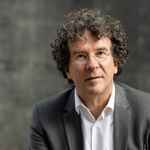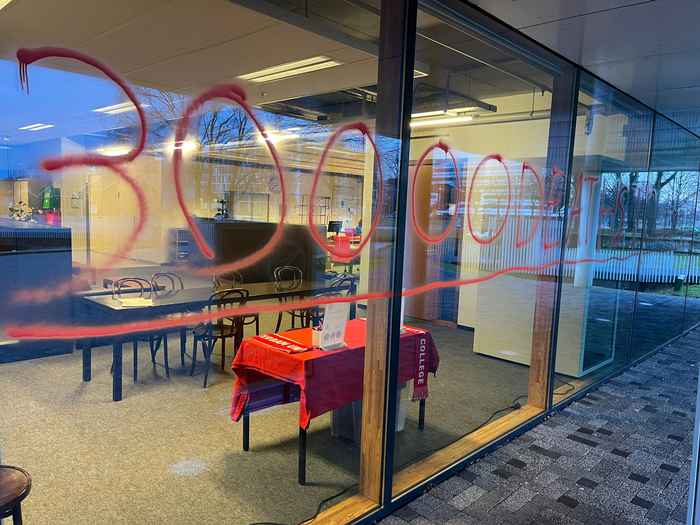Questions for Rector Peter-Paul Verbeek about protests
10 April 2024
What do the protesters want?
Peter-Paul Verbeek: 'They want the UvA to take a stand and break off all academic cooperation with Israel. I certainly understand their request and their emotion, and we’re happy to offer an outlet for that. But we also notice that some protests are becoming rather grim, making dialogue impossible. I don't think that suits an academic institution.'

People who wanted to enter were called liars or cowards.Rector Magnificus Peter-Paul Verbeek
How are you dealing with the situation?
'We are struggling with it. As an organisation, we cannot take a stand. Our university must provide a home for debate and criticism, within the agreed rules, and cannot properly fulfill that function if we as an organisation take an explicit position ourselves. Paradoxically, academic freedom requires that we limit space for political demonstrations, especially if they are accompanied by an atmosphere of intimidation and insecurity. Because they are then no longer focused on open dialogue, but on the imposition of one vision. But everyone within the university should be able to form their own opinion, or should be able to choose not to have an opinion, or not to discuss this within the university.'
'Unfortunately, we are increasingly seeing problematic actions. An admiral who does not get the opportunity to tell his story at Room for Discussion. At the Amsterdam University College (AUC), access to the building has been blocked for a week by masked protestors, making lectures and exams impossible. People who wanted to enter were called liars or cowards. Students feel unsafe in their dorms. We draw the line at that.'
And then it is necessary to call the police?
'That's not how it works. Within the AUC, the dean has been talking to the demonstrating students for months. And in the event of a blockade, we first try to enter into consultation, then we offer an alternative space so that education can continue or is not disrupted. We then ask if the demonstration can be moved so that the building remains accessible and education can continue. And only at the very last is contact made with the police for support. They start all over again: discussing, relocating, requesting to leave. It takes many hours before the police really intervene.'
You don't want peaceful students to be arrested, do you?
'No, definitely not. But you must also realise that a core of activists is willing to be arrested for maximum effect. That's okay, that's their choice. But as the UvA we also have a responsibility to other students and employees who want to go to college. And we must also keep space open for debate - you don’t do that with blockades and demands and statements. Masked protestors, labeling people as cowards, chanting slogans such as “From the river to the sea” – all of this is extremely impactful and disturbing for other parts of our community, especially Jewish students and employees.'
Where does the limit lie?
'If you ask it like that, it doesn't seem that complicated: meetings where there is room for dialogue are of course good, teach-ins for example. Demonstrating against university policy is also permitted. But there are conditions: no face coverings, no blockades, no overnight stays in buildings, no atmosphere of intimidation, and education and research must be able to continue as normal. Seems obvious to me. In practice it is sometimes more complicated.'
There are increasingly loud calls to cut ties with Israeli universities. After the invasion of Ukraine, ties with Russia were cut, right?
'We are very cautious about limiting institutional and individual collaborations without a clear legal basis or call from the central government. That was the case in Russia. We see the collaboration with individual Israeli employees, provided that the nature of the collaboration is in line with our academic mission, as an opportunity to maintain open lines of dialogue even in times of war - so-called “science diplomacy”. Severing or suspending all ties also means severing relationships with researchers who represent the critical voice in Israel.'
